Demonstrations against Israel, some attracting many thousands of people, have become a regular occurrence. We have grown used to the sight of masked protesters draped in Palestinian flags marching in our cities, blocking train stations, and even calling for jihad. The police, meanwhile, seem to be keeping a low profile.
Such light-touch policing is not normal. Think back to the 1980s and scenes of officers on horseback charging into striking coal miners. Or, more recently, the way women were dealt with at the vigil for murdered Sarah Everard. Why are pro-Palestine demonstrations being handled so differently?
One answer might lie with the police, and their approach to protest. Until yesterday, one person they were working with was the lawyer Attiq Malik, who was reportedly invited into the Met’s operations room. The Luton-based criminal defence solicitor served as chairman of the London Muslim Communities Forum – an advisory body to Scotland Yard.
This weekend The Telegraph revealed video footage of him addressing a rally in May 2021. Malik can be seen bemoaning the fact that anti-Israel protests receive little press coverage before explaining to the gathered crowd: ‘What’s going on is global censorship by the Zionists, global censorship to silence us.’ He then leads a chant of ‘from the river to the sea’.
Now, just as I wouldn’t consult an arsonist if I wanted advice on fire safety, I wouldn’t consult a political activist with a history of making such comments if I wanted to ensure peaceful protests and good community relations. But that’s just me. The Met, it seems, do things differently. They reportedly allowed Malik, as an adviser, to watch while crucial decisions were made about which actions constituted criminal behaviour.
With the Telegraph’s footage now public, the Met have announced they are cutting ties with Malik whose ‘language and views’ appear to be ‘anti-Semitic and contrary with our values’. But some may ask why he was ever put in this position in the first place.
Since pro-Palestine protests began in the immediate aftermath of the Hamas terrorist attacks, the police have taken a number of controversial decisions. There was the time they not only allowed protesters at a London rally to call for jihad but then justified it with the claim that the word jihad ‘has a number of meanings’. They went on to explain: ‘Specialist officers have assessed the video and have not identified any offences arising from the specific clip’. It is unknown, though not unreasonable to ask, whether Malik was one of the advisers helping officers reach this conclusion.
It can seem as if being vigilant for potential Islamophobia has become more important than the job of policing demonstrations objectively
While demonstrators are allowed to make themselves heard, police officers have been spotted removing posters raising awareness of Israeli hostages in both Manchester and London and a motorcade organised by the Campaign Against Anti-Semitism was ordered to turn off video billboards showing kidnapped children. Not for the first time, it can seem as if the police have taken a side. There’s previous, as a copper might say. We know that officers happy to don rainbow lanyards will question gender critical feminists on suspicion of hate crime.
But the case of Attiq Malik speaks to more than just political bias. Malik was not simply a protester being appeased: he was an adviser inside a Met Police operations room. Despite having been involved in a number of legal cases against the police, and reportedly calling for Prevent, the government’s anti-extremism programme, to be axed. And he’s not alone. The Telegraph has also revealed that Mohammed Kozbar, a prominent mosque chairman who is said (according to a recent House of Lords debate) to have praised the founder of Hamas, has been advising the Crown Prosecution Service as part of a ‘scrutiny panel’ on hate crime.
Far from being challenged, such characters are, it seems, being invited by publicly-funded institutions to come inside and tell senior leaders how to do their jobs. They’ll join an array of Equality, Diversity and Inclusion experts and members of staff networks, such as the National Association of Muslim Police. This speaks to a fundamental shift in purpose: rather than being seen as a distraction, or perceived as leading to biased outcomes, political campaigning – whether that’s joining in a Pride parade or kneeling for Black Lives Matter – is, in the eyes of some police officers, central to their job description.
Of course, we should expect police officers not to be racist, sexist, or homophobic. But problems emerge when they move from simply not being prejudiced, to advocating for a particular stance. For one thing, as we see with companies that prioritise woke branding over customer satisfaction only to see profits drop, advocating for a cause means taking your eye off the main thing. For the police right now, it can seem as if being vigilant for potential Islamophobia has become more important than the job of policing demonstrations objectively.
This is a risky strategy. It calls into question the fundamental principle of equality before the law. More importantly, it could pose significant dangers for the UK’s Jewish population.
Got something to add? Join the discussion and comment below.
Get 10 issues for just $10
Subscribe to The Spectator Australia today for the next 10 magazine issues, plus full online access, for just $10.

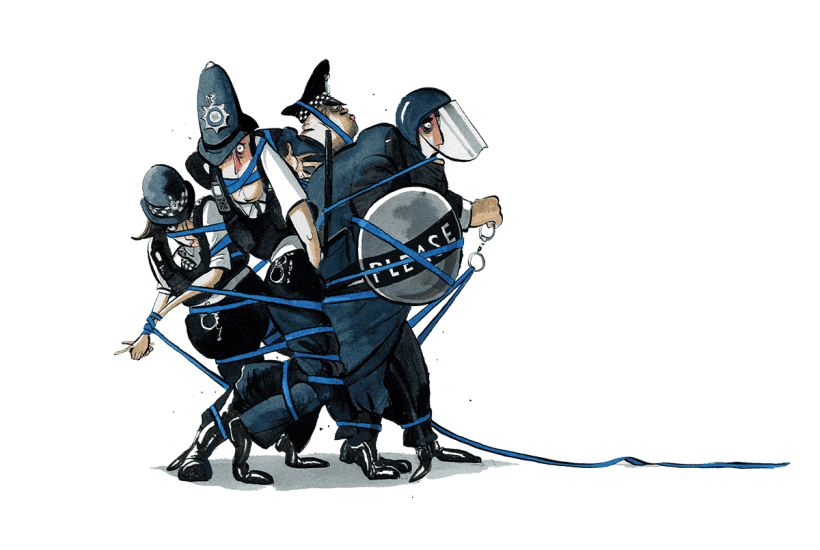
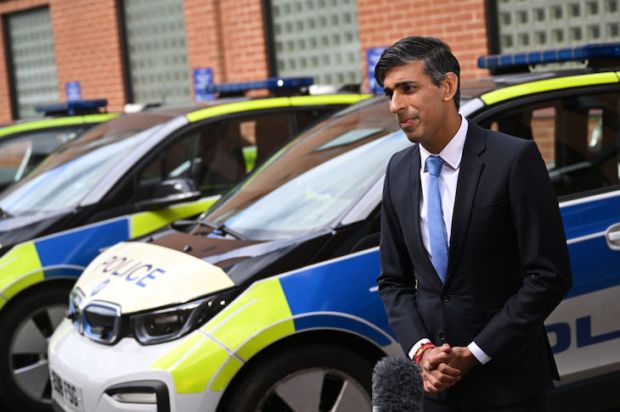
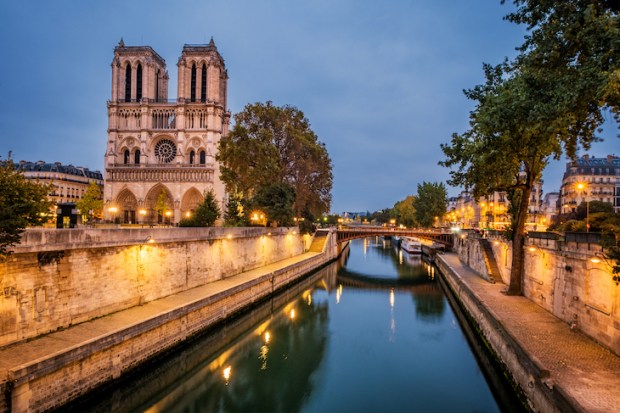
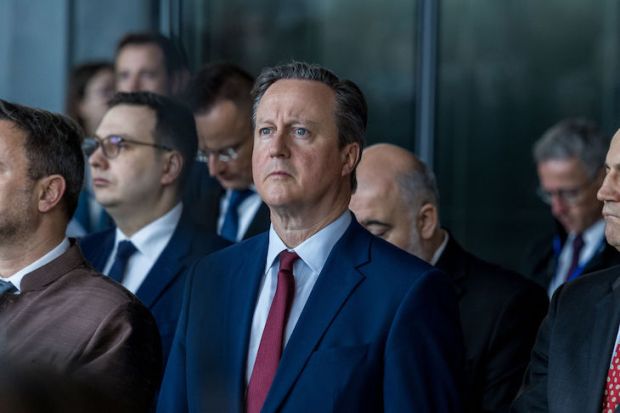
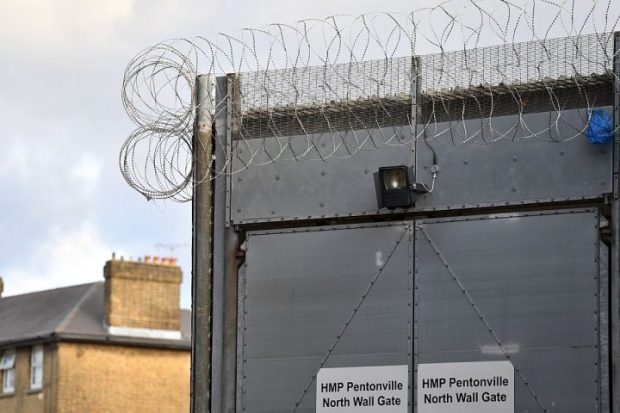
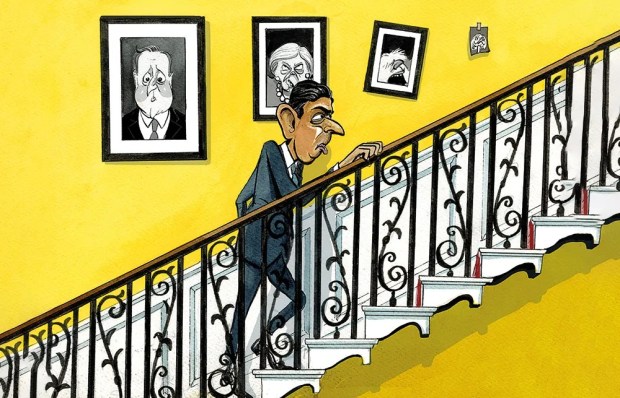
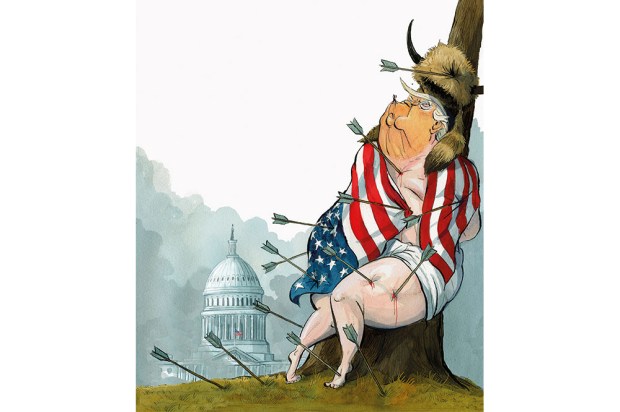












Comments
Don't miss out
Join the conversation with other Spectator Australia readers. Subscribe to leave a comment.
SUBSCRIBEAlready a subscriber? Log in